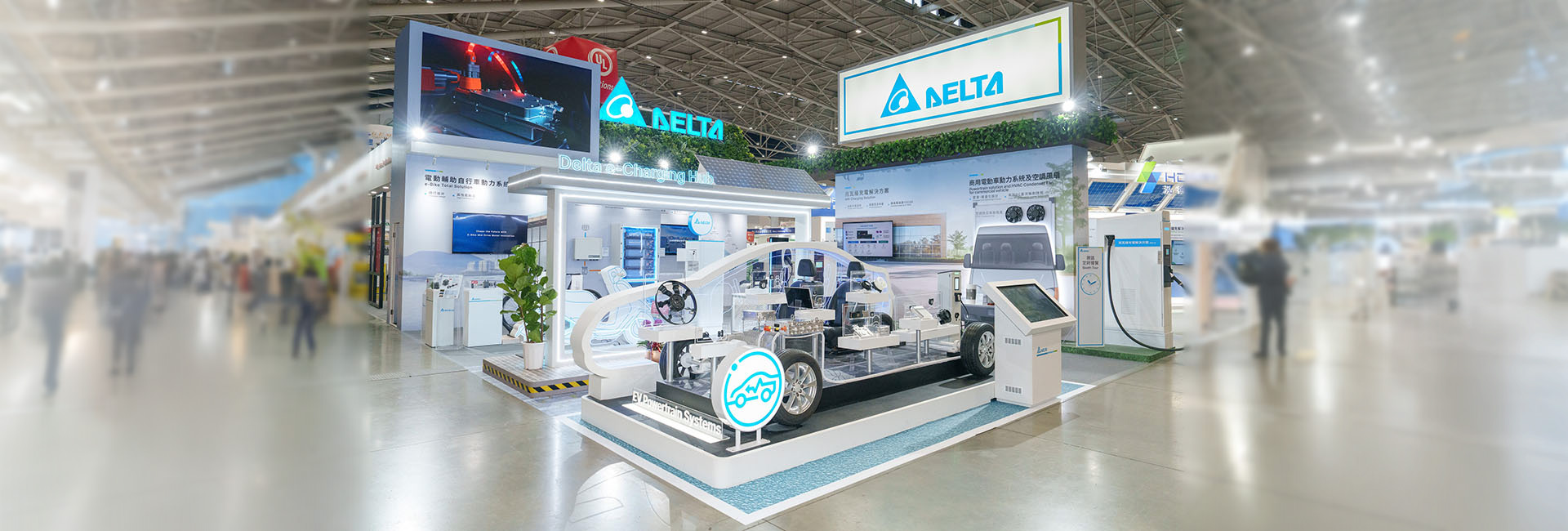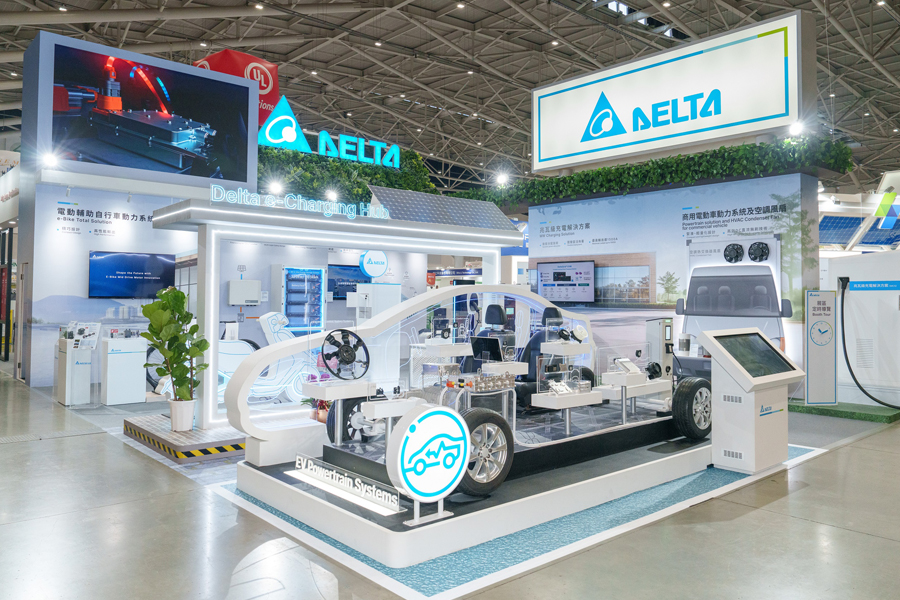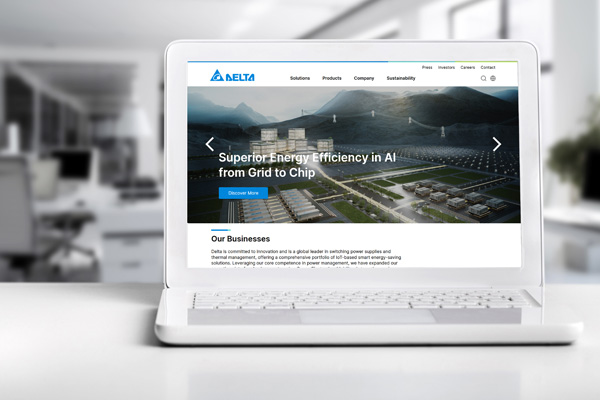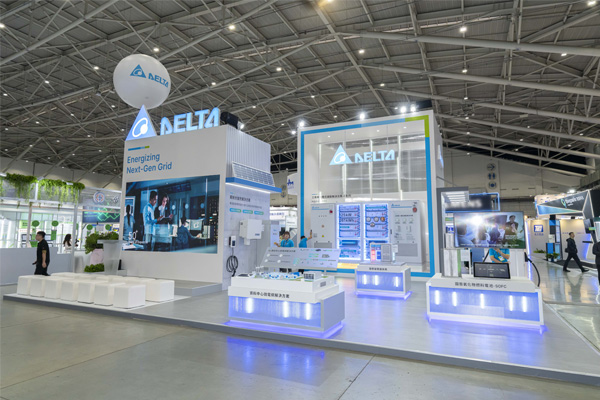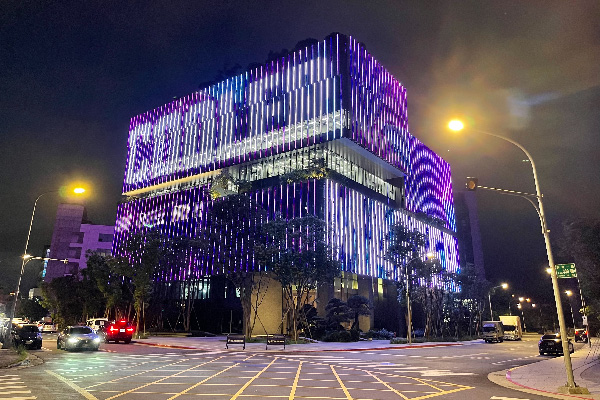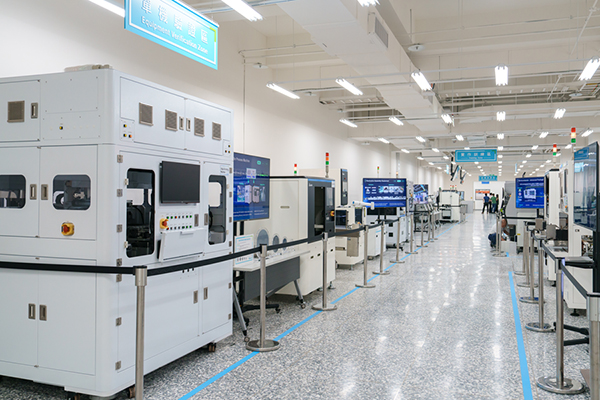Delta has designed a“Smart Tourist Center Charging Station” scenario within its exhibition area, integrating solar power generation, energy storage systems, power conditioning equipment, and EV charging facilities to create a self-sufficient charging station. The display highlights five key areas: EV charging infrastructure, automotive power electronics and thermal management technologies, charging and power systems for electric two-wheelers, high-efficiency charging and energy storage solutions, and the Intelligent Community Management System platform. Through tangible demonstrations and scenario-based simulations, visitors can gain insights into how innovative and energy-saving solutions operate across various applications, fully illustrating a smart mobility ecosystem that spans from “vehicle charging” to “on-site power generation.”
Shan-Shan Guo, Delta’s Chief Brand Officer, said, “E-mobility is a key engine for the global trend toward energy conservation and carbon reduction. To meet the demands of high-power EVs, Delta has developed new traction motors for electric commercial vehicles, as well as a megawatt-level charging solution—especially for long-haul EVs in European and American markets. This year, our showcase features a comprehensive charging station that reflects various urban usage scenarios, offering corresponding charging and energy management solutions while also underscoring Delta’s unique strengths in EV powertrains, automotive power and cooling electronics, and energy infrastructure—all essential to helping mankind realize a smarter e-mobility future worldwide.”
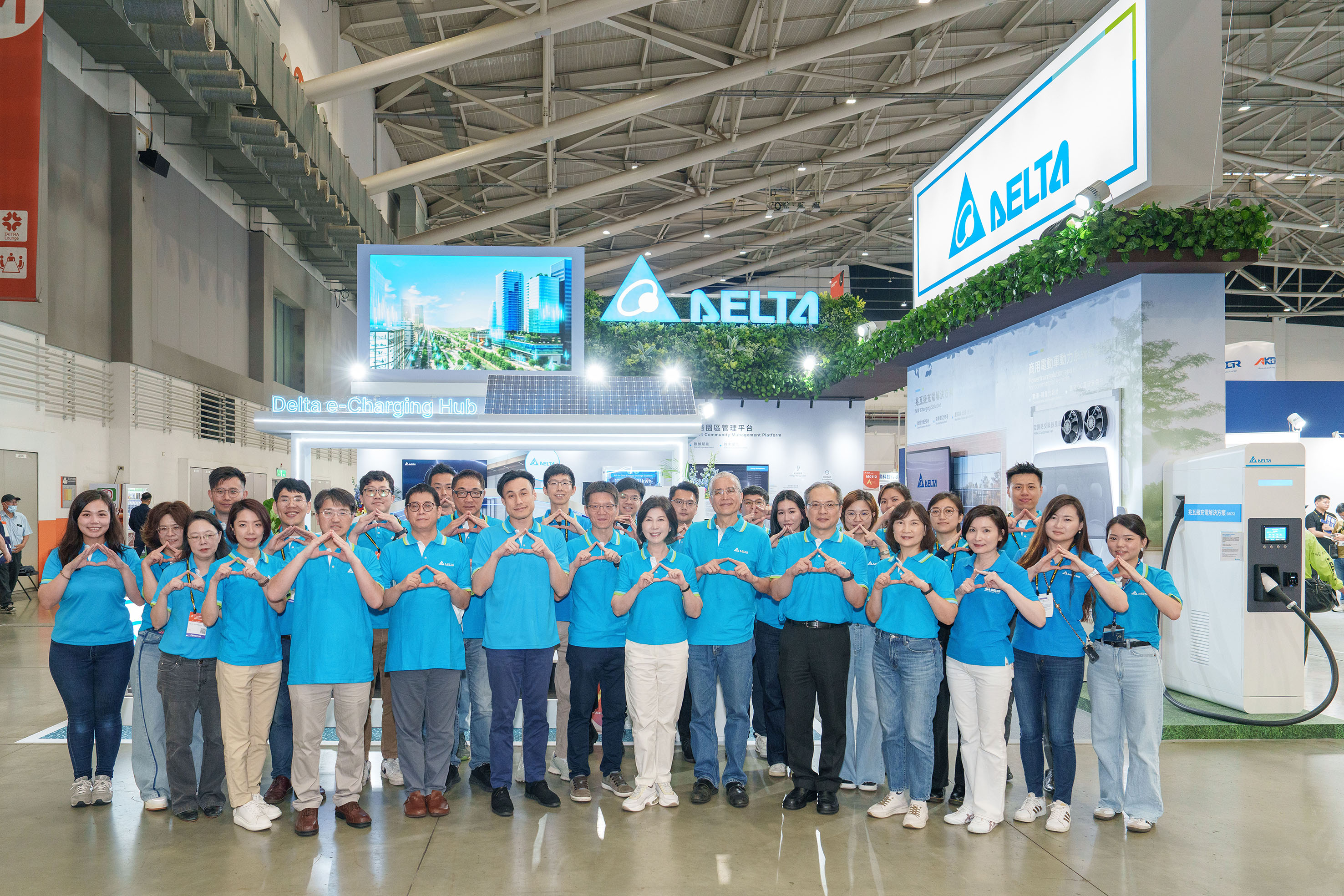 Shan-Shan Guo, Delta’s Chief Brand Officer (middle) and colleagues took a group photo at the booth.
Shan-Shan Guo, Delta’s Chief Brand Officer (middle) and colleagues took a group photo at the booth.
Megawatt charging solution makes striking debut, empowering heavy-duty commercial vehicles with new momentum
According to research from The Business Research Company, the electric truck market is projected to reach USD 27.17 billion by 2029. In response to the rapid global electrification of heavy-duty commercial vehicles, Delta unveiled its Megawatt Charging System (MCS) for the first time. As one of the highlights of the exhibition, the MCS attracted significant attention from visitors and media alike, underscoring Delta’s technological leadership in the high-power charging sector.
The system can support output specifications of up to 1,500 amps and 1,250 volts, delivering a charging power of 1 MW per charging post. With its modular and scalable design, the system can be expanded to exceed 3 MW, meeting the practical requirements of heavy-duty trucks and long-haul buses to complete long-range recharging within 30 minutes. It can also support both DC-coupled and AC-coupled architectures, allowing it to adapt to various grid conditions and enhancing deployment flexibility and system compatibility.
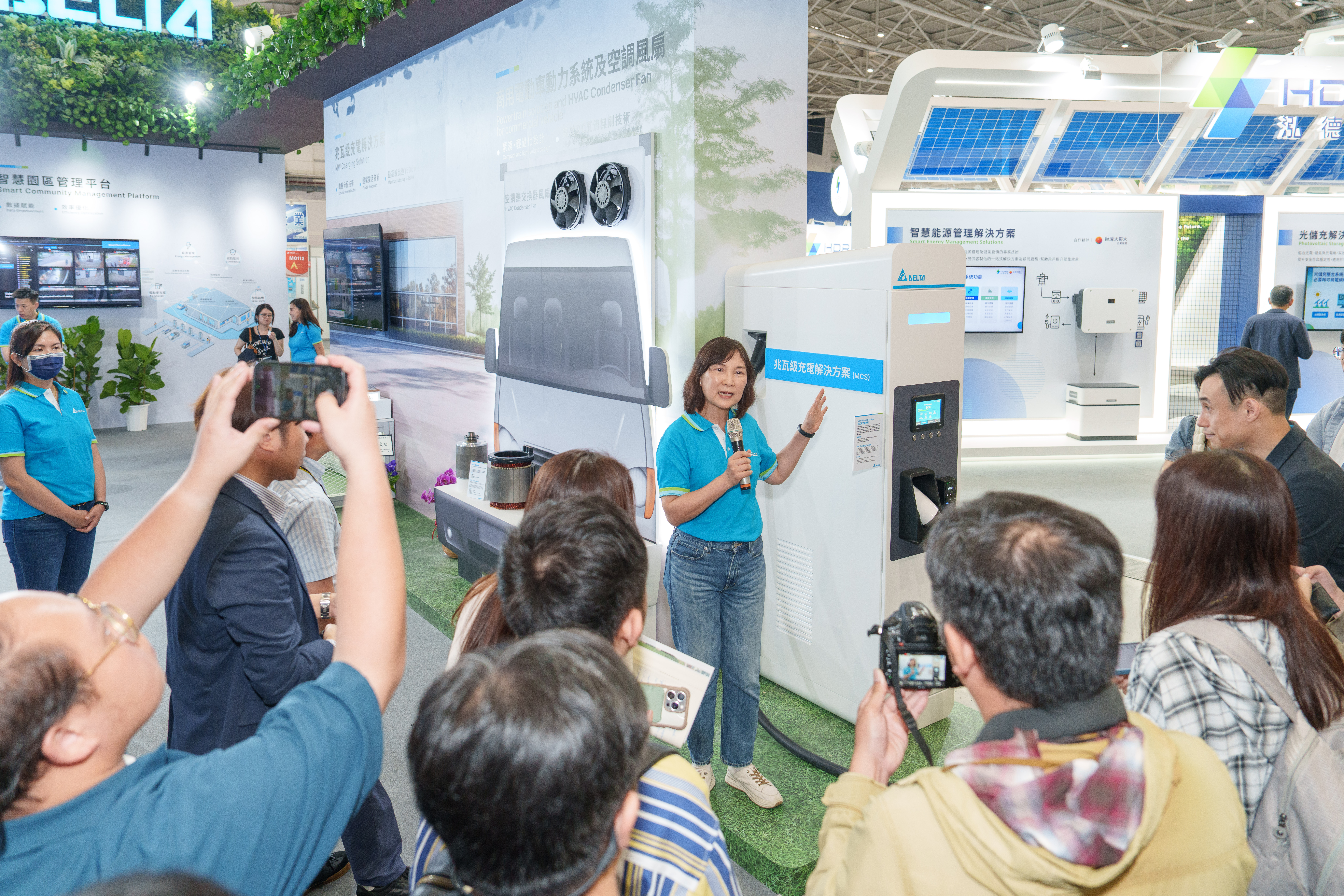 Sunny Lee, Director of the EISBG, introduced the Megawatt Charging System, drawing significant attention from visitors and media alike.
Sunny Lee, Director of the EISBG, introduced the Megawatt Charging System, drawing significant attention from visitors and media alike.
The new hairpin-type drive motor and thermal management technology enhance EV’s performance and reliability
At this exhibition, Delta launched its new hairpin-type drive motor designed with an 800V high-voltage architecture, delivering over 97.5% efficiency and a maximum power output of 330kW. The motor integrates advanced oil and water cooling technologies to ensure stable performance under high-load operation. Delta also showcased a comprehensive range of thermal management solutions covering both air and liquid cooling systems. Highlights include high-efficiency vapor chambers integrated into air-cooled designs for autonomous driving systems, and dual-layer cold plates for liquid-cooled applications. For powertrain systems, Delta presented the key to efficient heat exchange—the BLDC radiator fan, which not only supports pure electric vehicles but is also widely applicable to hybrid and internal combustion engine vehicle thermal management systems. These innovations demonstrate Delta’s strong expertise in automotive thermal management.
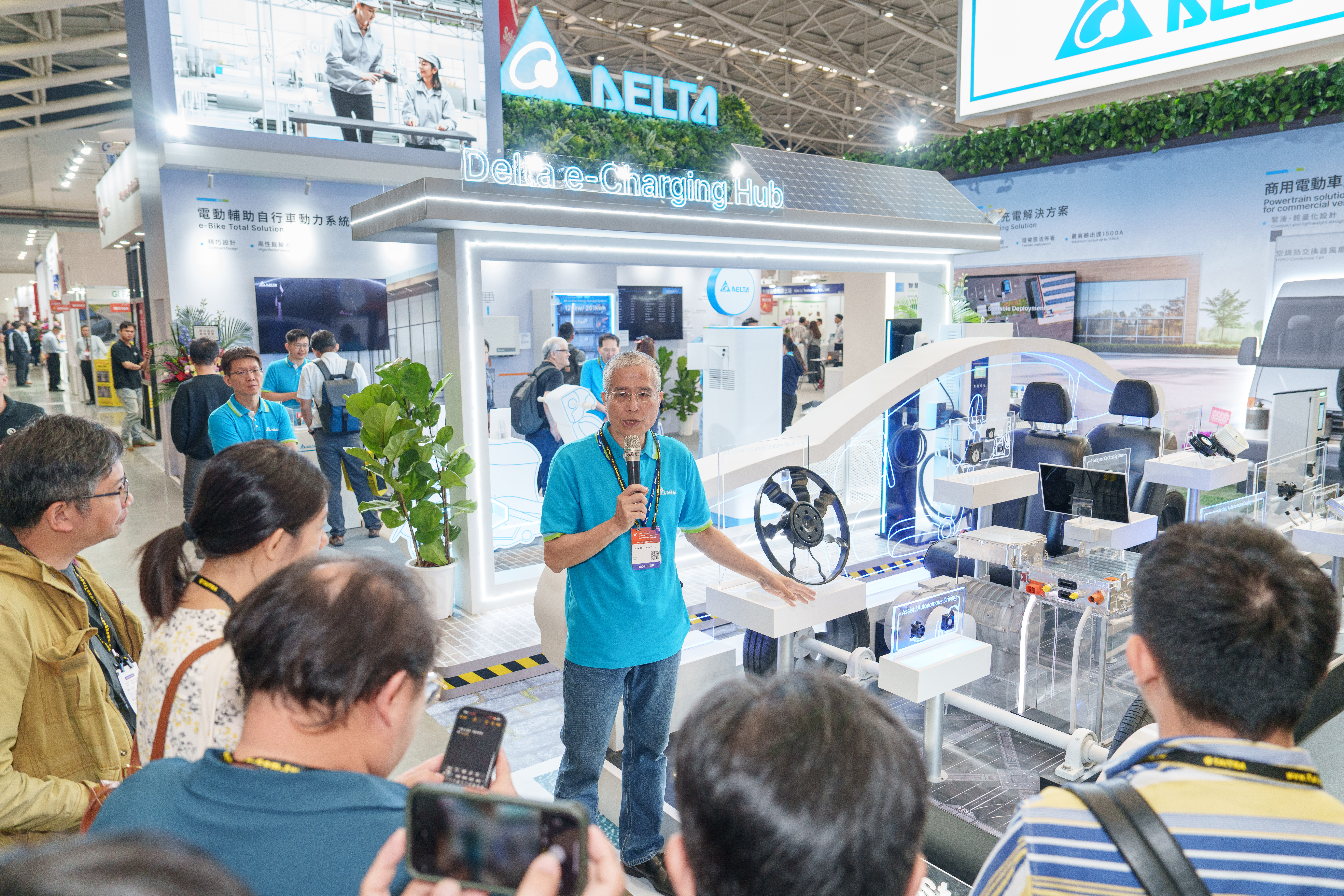 C.Y. Lin, Senior Director of the Advanced Technology Division of Mobility Business, explained Delta’s EV powertrain system during a media tour.
C.Y. Lin, Senior Director of the Advanced Technology Division of Mobility Business, explained Delta’s EV powertrain system during a media tour.
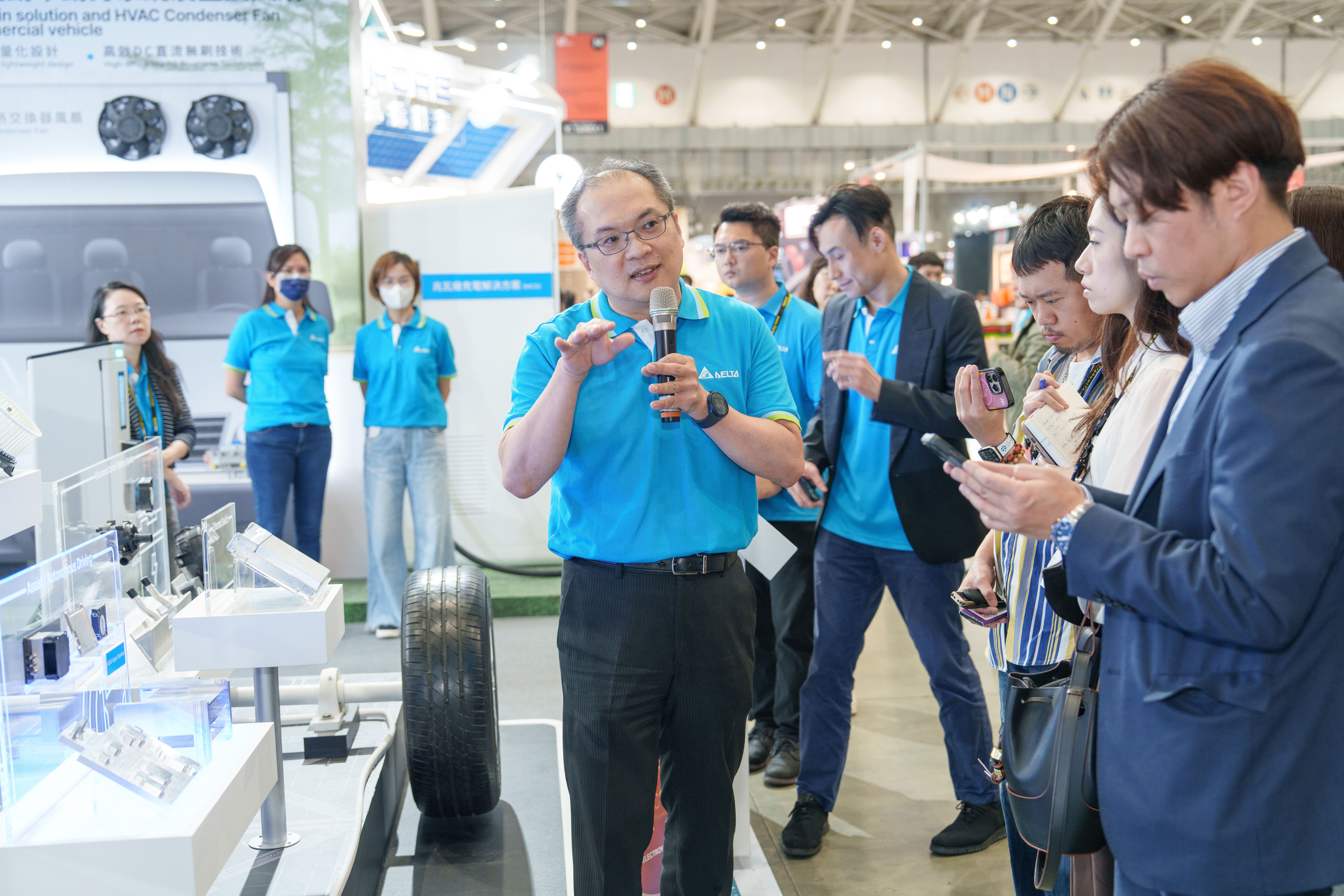 Jack Chen, Director of the Automotive Thermal Solution BU, introduced Delta’s thermal management solutions for four domains of vehicle systems.
Jack Chen, Director of the Automotive Thermal Solution BU, introduced Delta’s thermal management solutions for four domains of vehicle systems.
The integration of electric two-wheeler powertrain systems expand mobility market presence
In the electric two-wheeler segment, Delta has established a comprehensive presence in both charging/swapping and powertrain systems. This includes a 2kW portable electric scooter battery charger, capable of operating at ambient temperatures up to 50°C, allowing reliable charging even in hot climates and convenient on-board portability. Delta also offers fully integrated electric powertrain solutions, encompassing motor, battery, and motor controller systems, to meet the diverse requirements of bicycle manufacturers. Notably, Delta’s mid-drive motor for e-bikes was recently honored with the 2025 iF Design Award. The highly integrated side-mounted e-powertrain system for e-scooters and e-motorcycles adopts a modular design, enabling customization of power systems for both light and heavy-duty vehicles, thereby enhancing market competitiveness.
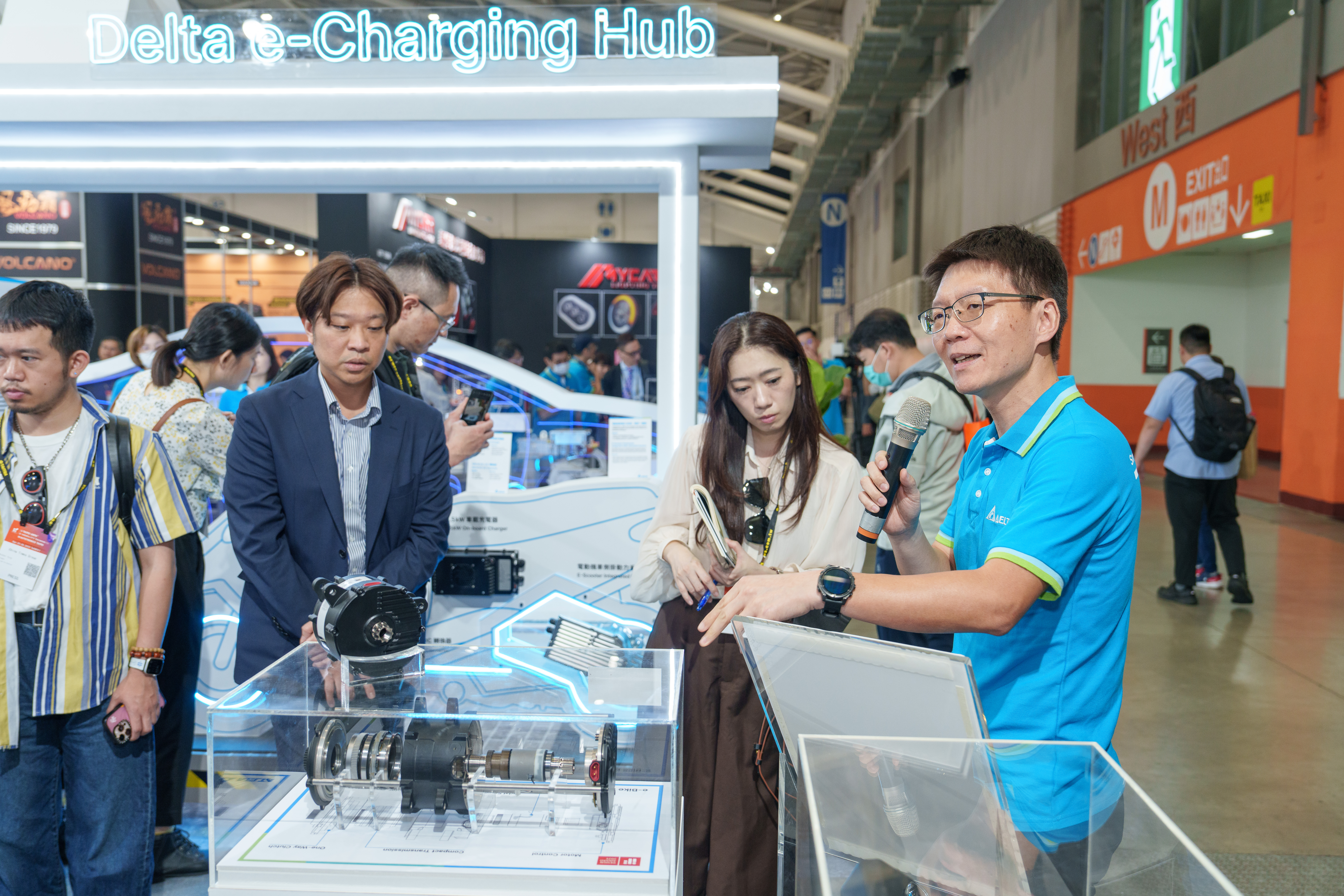 Josh Chi, Director of the Low-voltage Electro Mobility Business Development Dept. shared Delta’s solutions for two-wheel EVs.
Josh Chi, Director of the Low-voltage Electro Mobility Business Development Dept. shared Delta’s solutions for two-wheel EVs.
All-in-one energy storage system enhances efficient energy management
This year’s exhibition also features an energy infrastructure based on the microgrid concept. Delta’s all-in-one energy storage system adopts a modular design and a fully liquid-cooling architecture, offering high deployment flexibility and significantly reducing operation and maintenance costs. Tailored for office buildings and fleet operators, the system delivers a one-stop solar-charging-storage integrated solution that seamlessly combines both hardware and software.
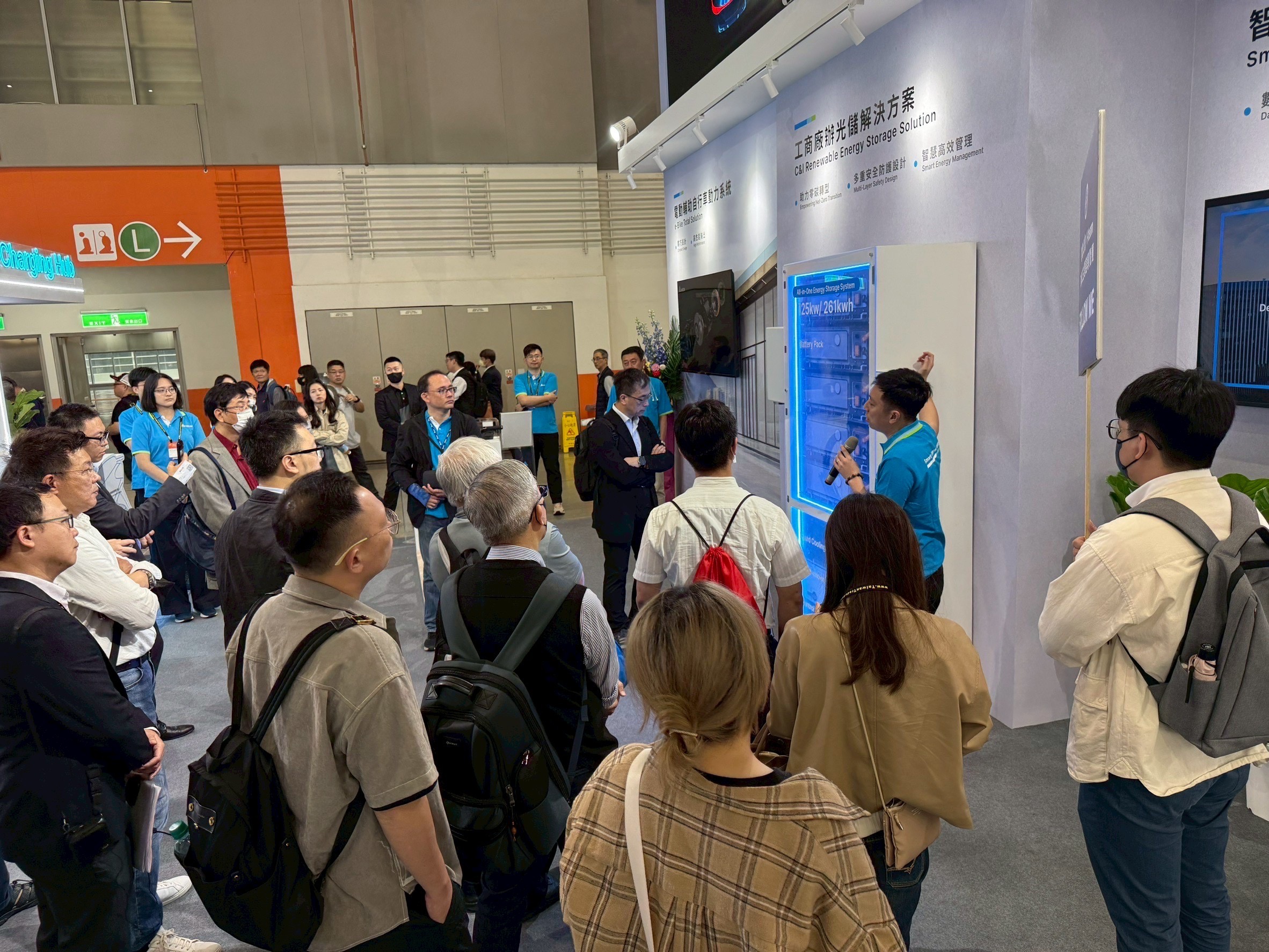 A Delta colleague introduced the all-in-one commercial and industrial energy storage system and its liquid-cooling architecture to visitors.
A Delta colleague introduced the all-in-one commercial and industrial energy storage system and its liquid-cooling architecture to visitors.
iCMS smart community platform enables low-carbon operations management
The iCMS smart community platform is Delta’s flagship solution for integrating smart city initiatives with low-carbon operational management. The platform consolidates energy management, renewable energy integration, energy storage dispatch, building automation, carbon emission monitoring, and security surveillance into a unified system. Through a user-friendly visual interface, it provides managers with comprehensive insights into energy consumption and facility status, significantly enhancing decision-making efficiency and carbon footprint management capabilities.
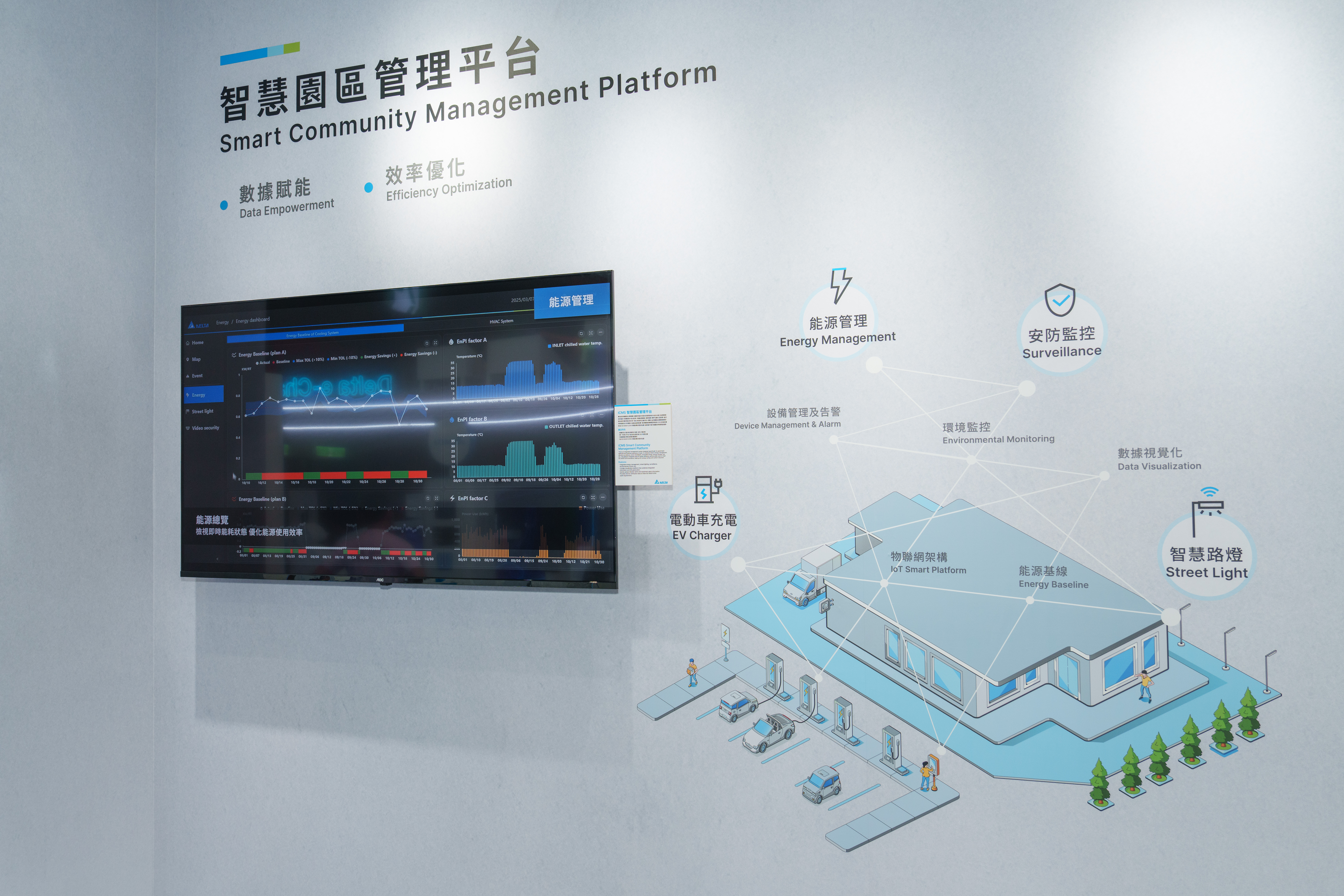 The Smart Park Management System implemented at the Taichung Passenger Terminal assists in establishing an energy monitoring and maintenance platform. This deployment demonstrates the system’s high practicality and scalability for large-scale facilities.
The Smart Park Management System implemented at the Taichung Passenger Terminal assists in establishing an energy monitoring and maintenance platform. This deployment demonstrates the system’s high practicality and scalability for large-scale facilities.
Delta participated in the 360° MOBILITY FORUM to share the smart microgrid solution
During the exhibition, the organizer hosted the ''360° MOBILITY FORUM'' event, featuring a keynote speech by Jim Chen, Vice General Manager of the Smart Energy Solutions Business Development Division, who was invited to share insights on next-generation microgrids and technological solutions at the forum. At the forum, Chen highlighted Delta’s development of a next-generation smart microgrid architecture and energy management platform characterized by “connectivity, interoperability, and integration.” This platform features real-time sensing and distributed energy resource scheduling capabilities, enabling intelligent energy control at the consumption end and supporting multi-scenario energy collaboration to form a comprehensive microgrid ecosystem. Delta has successfully implemented and validated its microgrid technologies at multiple sites, including Hualien Shoufeng, Taoyuan Asia Silicon Valley, and several smart campuses, thereby advancing sustainable transformation in urban transportation and energy sectors.
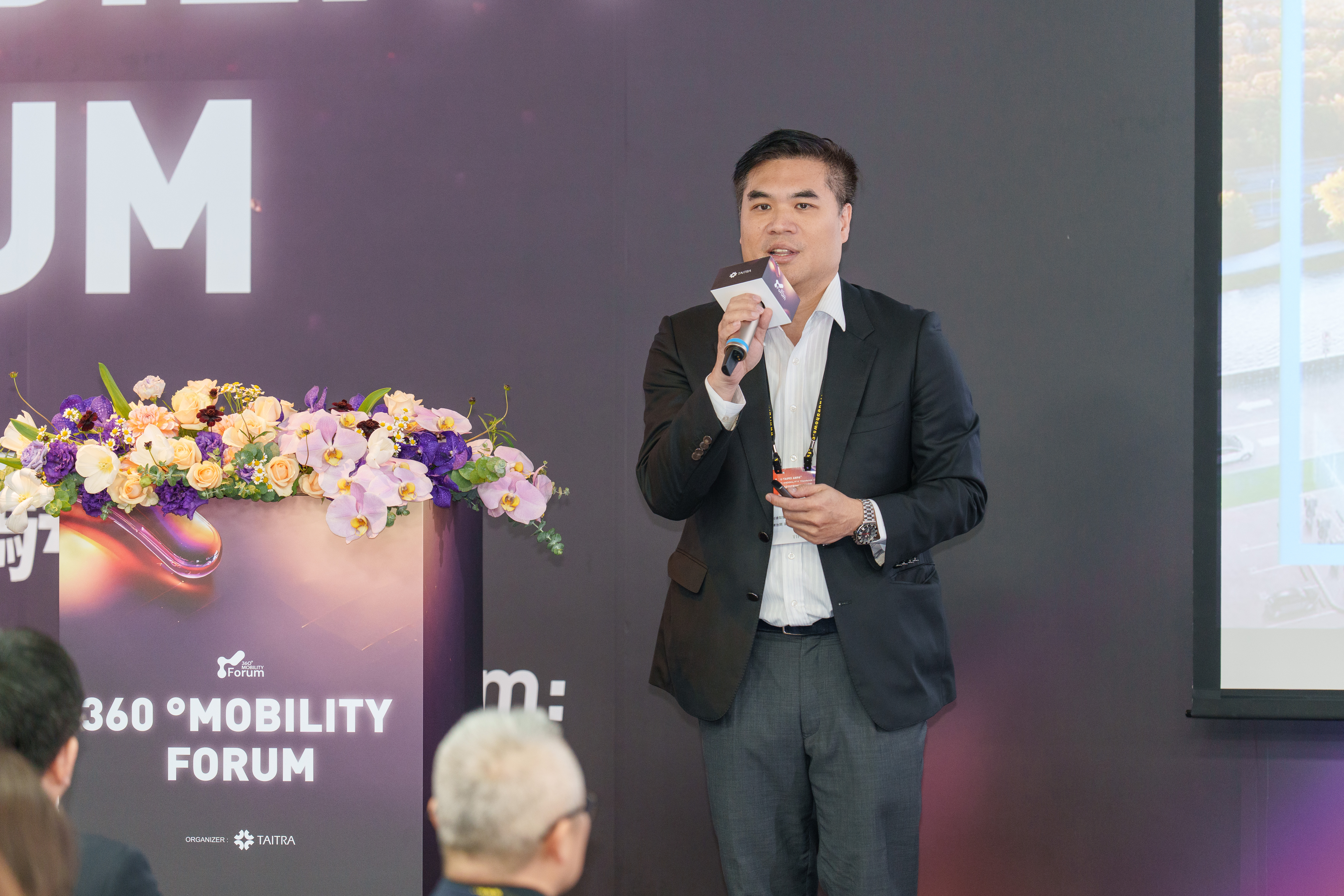 Jim Chen, Vice General Manager of the Energy System Solutions Business Dept. delivered a keynote speech on the topic of next-generation microgrid solutions.
Jim Chen, Vice General Manager of the Energy System Solutions Business Dept. delivered a keynote speech on the topic of next-generation microgrid solutions.





